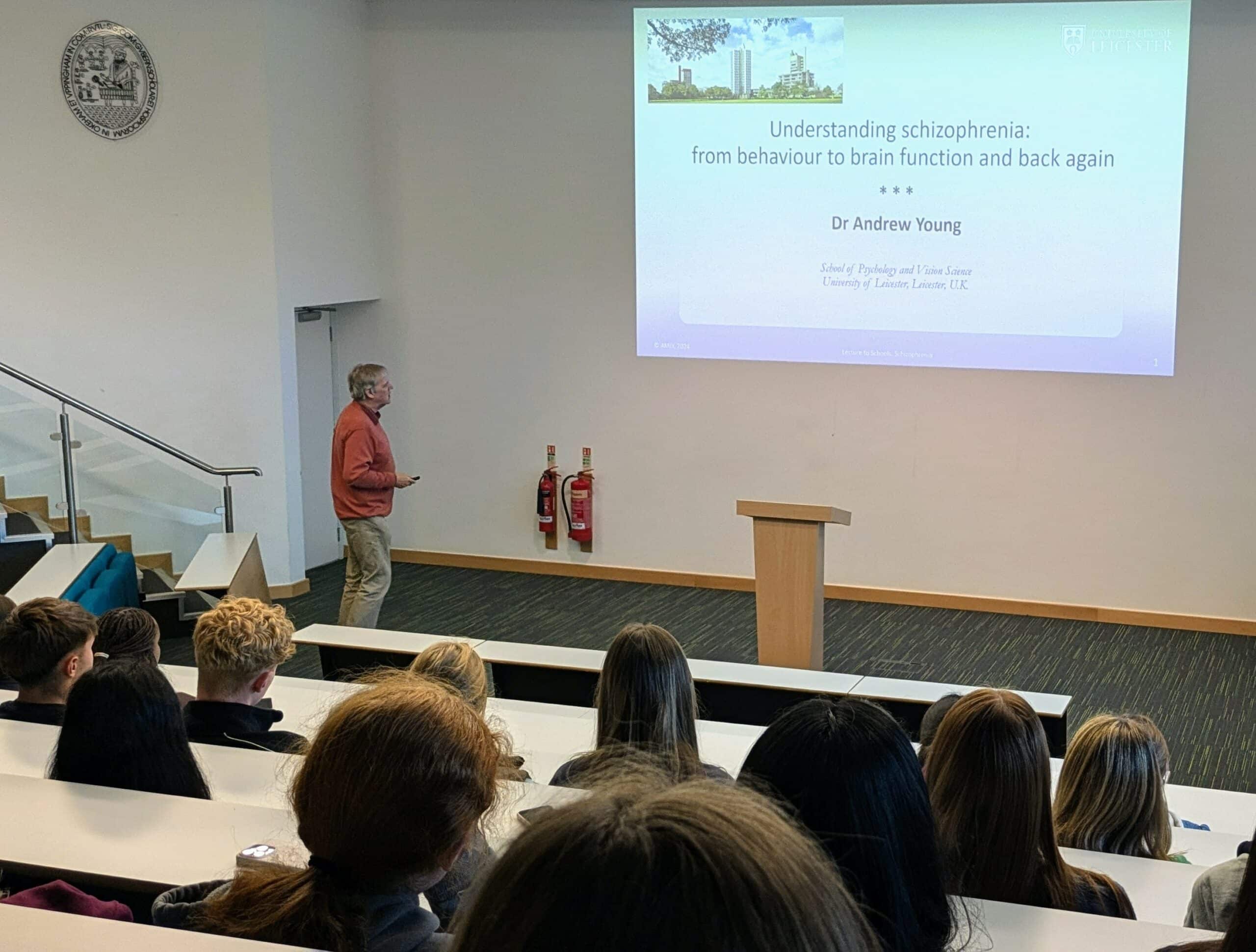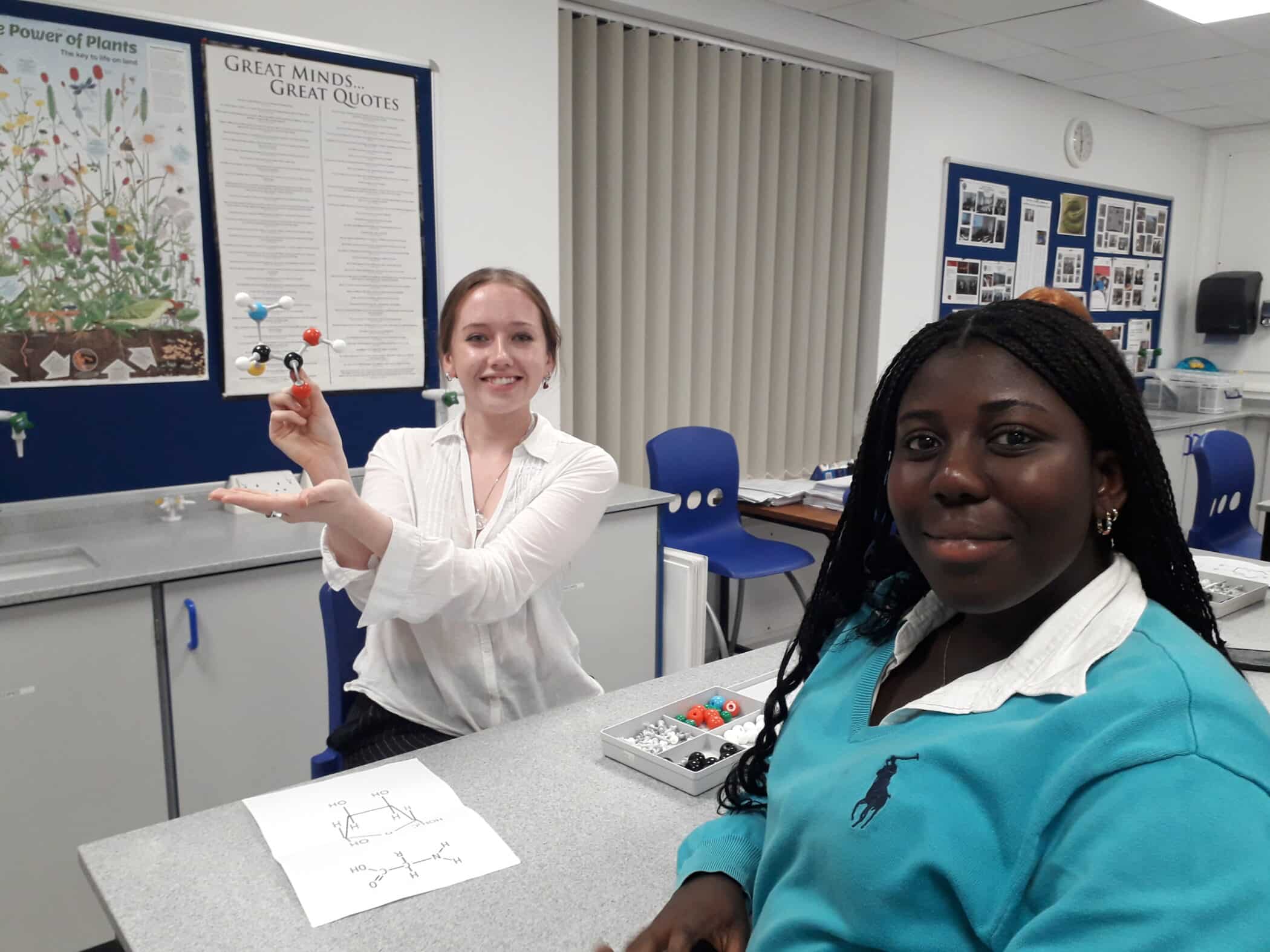Psychology Torch Lecture: Schizophrenia and Psychosis
Our first Torch Lecture of the year saw Dr Andrew Young, Associate Professor from the University of Leicester, deliver a university-level lecture on schizophrenia and psychosis to our A-level and IB pupils.
Having taught for numerous years in several universities and conducted his own research into schizophrenia treatments, Dr Young’s lecture was an overview of what’s to come in the Form 7 Psychology curriculum this year.
Students were given an insight into Biological Psychology, which explored the intricacies of how anti-psychotics work at the synapse, why animals are used as a replacement to humans and why it’s challenging to conduct research into suspected neurotransmitters (Glutamate) due to their interaction with various behaviours and difficulty to control.
The lecture began with a history of schizophrenia where it was coined ‘Dementia of the young’ in the mid-1800s until it was later defined as a ‘dissociation between the mind and outside world’ in the early 1900s. This was followed by insight into its prevalence (0.5% of the population) and an indication of symptoms (positive symptoms are an addition to normal life – hallucinations, whereas negative symptoms remove daily functioning – impaired speech and thoughts).
The lecture included content from the three psychology degrees offered at Leicester University, spanning from Year 1 to Year 3 in terms of the depth of explanations. As it progressed, Dr Young began to introduce his research, suggesting that the cause of schizophrenia is still relatively unknown with evidence suggesting a slight genetic predisposition, pregnancy complications, upbringing and enlarged ventricles in the brain. However, despite having these predispositions, the illness doesn’t present until adolescence and not all individuals experience these predispositions – researchers are still unsure why.
Another area of uncertainty within schizophrenia is its treatment. The discovery of its drug treatment was discovered by accident years before our biological understanding of the neurochemical, dopamine. Although effective in most (50%), there have been no new developments of drug therapy for the illness since the 1990s, and in severe cases, drug therapy is ineffective (25%). Pupils were given insights into Dr Young’s research, whereby recreational drugs such as Amphetamines are found to induce positive symptoms due to increasing dopamine whereas Phencyclidine induces positive and negative symptoms due to decreasing glutamate transmission. A thought-provoking discussion around drug-use followed – experiencing hallucinations due to recreational drugs is seen as an acceptable or desirable part of the experience, whereas if they are experienced through schizophrenia there is a stigma attached, however, the biological process is the same in both.
Torch Lectures are a weekly series of subject-related lectures that aim to enrich pupils in their chosen subjects. To find out more about studying Psychology at Oakham, follow @OakhamPsychology on Instagram.






